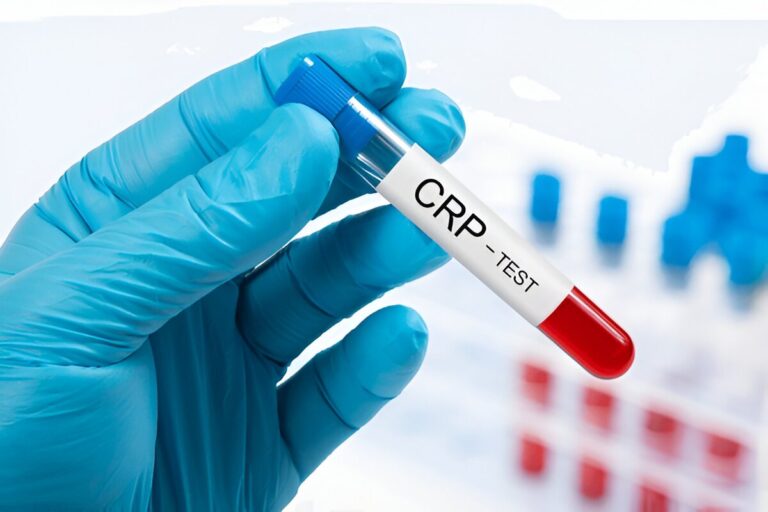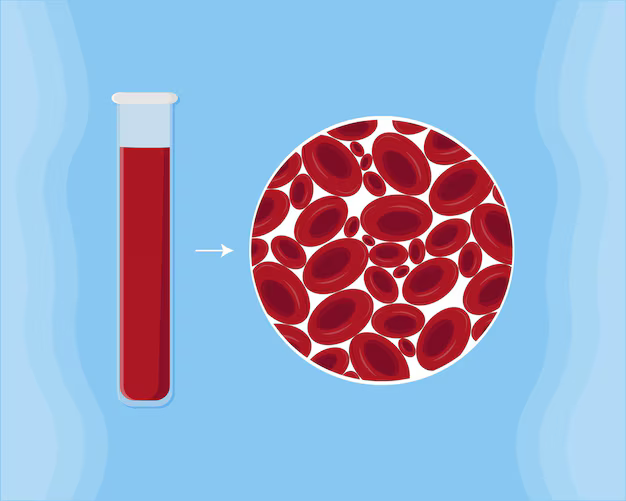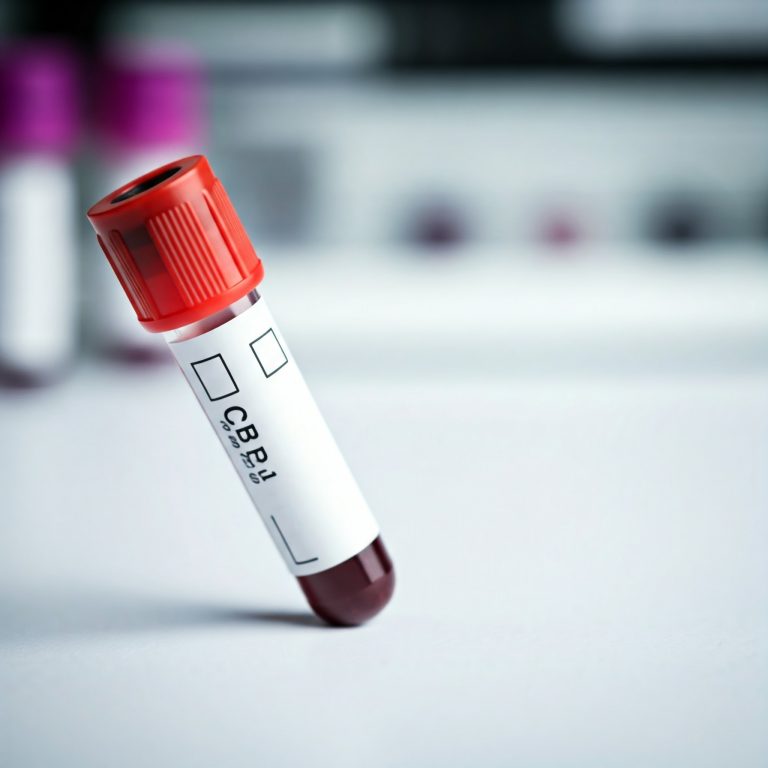CRP Test: The Simple Blood Test That Reveals Inflammation
October 01,2025

Think of inflammation as your body’s “check engine” light. Sometimes it’s just a minor alert, like a sore throat, and other times it signals something more serious brewing under the hood. One of the most reliable ways doctors detect this internal signal is through the CRP blood test.
The c reactive protein test measures a substance made by your liver whenever there’s inflammation in the body. But here’s the catch: while it doesn’t pinpoint the exact problem, it’s an early red flag that something needs attention.
So, if you’ve ever wondered “what is crp blood test and why would my doctor order one?”—you’re in the right place.
What Is a CRP Test?
A CRP test measures the concentration of c reactive protein in your bloodstream. When your body faces infections, injuries, or chronic diseases, your liver releases CRP into the blood. The higher the level, the stronger the inflammation response.
Doctors don’t use the test to diagnose one specific condition. Instead, it’s more like a spotlight pointing toward possible issues such as:
- Bacterial or viral infections
- Autoimmune conditions like rheumatoid arthritis or lupus
- Heart disease risk (especially with the hs-CRP test)
- Recovery progress after surgery
Why Might You Need a C Reactive Protein Test?
Your doctor might suggest a c reactive protein test if you’re showing signs of inflammation, like:
- Fever that doesn’t go away
- Unexplained fatigue
- Swollen or painful joints
- Sudden weight loss without reason
But it’s not just about diagnosing illness. The crp blood test also helps in:
- Monitoring chronic disease: Tracking flare-ups in autoimmune conditions.
- Assessing heart health: Elevated CRP can signal higher cardiovascular risk.
- Checking for post-surgical complications: If CRP rises unexpectedly after surgery, it could mean an infection.
How the CRP Blood Test Works
Here’s the good news: the crp test is quick, simple, and almost painless.
- A healthcare professional cleans your arm.
- Blood is drawn from a vein with a small needle.
- The sample heads to a lab where c reactive protein levels are measured.
Results usually come back the same day or within 24 hours.
CRP Normal Range: What Do the Numbers Mean?
Your results are reported in milligrams per liter (mg/L). Here’s how doctors typically interpret them:
- Normal: Less than 3 mg/L → Usually no active inflammation.
- Moderate: 3–10 mg/L → Could mean mild inflammation from infections or chronic conditions.
- High: Greater than 10 mg/L → Suggests acute infection, injury, or severe inflammation.
It’s important to remember: the crp normal range is just a guideline. Levels outside the range don’t diagnose a specific disease, they simply alert your doctor that something’s happening in the body.
CRP Test vs hs-CRP Test
You might hear your doctor mention both a CRP test and an hs-CRP test. What’s the difference?
- CRP Test → Measures overall inflammation. Useful for infections, autoimmune issues, and injuries.
- hs-CRP Test → A “high-sensitivity” version that detects smaller changes in CRP. Primarily used to assess heart disease risk.
Think of the hs-CRP as a magnifying glass for your cardiovascular health.
Do You Need to Prepare for the CRP Blood Test?
Usually, no special prep is required. You can eat and drink normally. However, some medicines, like aspirin, ibuprofen, and other anti-inflammatory drugs, may lower CRP levels and affect results. That’s why it’s best to tell your doctor about all your medications before scheduling your c reactive protein test.
Why the CRP Test Matters
The crp test isn’t just another lab number. It’s a powerful way to:
- Catch infections early
- Monitor treatment effectiveness
- Reduce complications from chronic disease
- Understand long-term risks for cardiovascular problems
Think of it as an early warning system—one that could help prevent bigger health issues down the line.
Conclusion: Small Test, Big Insights
The c reactive protein test is a quick, low-effort way to uncover hidden inflammation in your body. Whether it’s an infection, an autoimmune condition, or even early warning signs of heart disease, the test gives doctors crucial clues about what’s happening inside.
If you’re experiencing ongoing symptoms like fever, joint pain, or unexplained fatigue, ask your doctor: “Should I get a CRP test?” It might be the first step toward protecting your long-term health.
FAQs on CRP Blood Test
1. What is the CRP test used for?
The crp blood test measures inflammation in your body and helps detect infections, autoimmune conditions, or cardiovascular risk.
2. What is the CRP normal range?
A crp normal range is typically below 3 mg/L. Anything higher suggests inflammation.
3. What is the difference between a CRP test and an hs-CRP test?
The CRP test looks at general inflammation, while the hs-CRP test detects smaller changes and is often used to assess heart disease risk.
4. How is the CRP blood test performed?
It’s a simple blood draw from a vein, just like most other routine lab tests.
5. Do I need to fast before a CRP test?
No, fasting is not usually required. But let your doctor know about medications that might affect your CRP levels.
References / Sources
- Mayo Clinic – C-reactive protein test
- American Heart Association – CRP and Heart Disease Risk
- Cleveland Clinic – CRP Test Results & Normal Ranges
- MedlinePlus – CRP Test vs hs-CRP Test









Leave a Reply